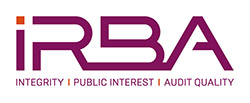CFOs and Audit Committees
|
Independence serves as the cornerstone of the auditing profession and remains front of mind for the IRBA. The independence of auditors is a relevant matter in evaluating the reliability of the auditor’s report. Independence is defined in the IRBA Code of Professional Conduct (the Code) as comprising two elements, independence of mind and independence in appearance.
Threats to independence arise when there is a close relationship between the external auditor and the management of a client. The Chief Financial Officer (CFO) or Financial Director (FD) of a client is usually in a position to exert significant influence over the preparation of the client’s accounting records or the financial statements on which the audit firm will express an opinion. A threat to independence may arise when the CFO or FD of a company has previously been employed by the firm that is currently appointed as the auditor of that company. Another situation that creates a threat to independence is where a former partner or member of the audit team joins the board of an audit client, for example as a member or chair of the audit committee. A study was performed to determine the percentage of companies listed on the JSE whose audit committee chairman was previously employed by the audit firm appointed as the external auditors of that company, as well as to determine the percentage of companies whose CFO/FD was previously employed by the audit firm appointed as the external auditors of that company. Significantly, 18% of the CFOs/FDs of the JSE Top 40 listed companies were previously employed by the audit firm that was listed as the appointed external auditor to that company in the annual report and 25% of Audit Committees Top 40 listed companies are chaired by a member who was previously employed by the audit firm that is appointed as the external auditor to that company. This certainly raises issues of familiarity threats between firms and audit committees and CFOs. While these findings suggest a threat to independence, the significance of the threat may be influenced by a number of factors, including the duration of employment of the CFO or Audit Chair at the audit firm, the level of seniority held by the CFO or Audit Chair at the audit firm, as well as the length of time that has passed since the CFO or Audit Chair left the audit firm prior to joining the company. Section 290 of the IRBA Code of Professional Conduct examines these and other areas of familiarity which auditors should consider when reviewing independence on an audit. Audit committees of companies should also refer to Section 290 when conducting independence assessments. |





